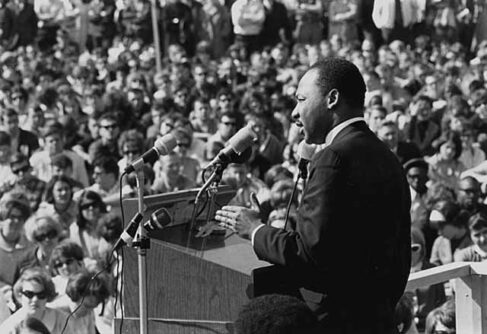As its title Coming Apart suggests, Murray’s new book is about the fragmentation of a more-or-less unitary American civic culture into separate civic cultures of “Fishtown” and “Belmont.”
The original American civil culture, which held sway across all classes from the founding until the 1960s, was founded on the virtues of industriousness and honesty and on the institutions of marriage and religion. Together, these virtues and institutions were the basis for a civic culture that supported free government and social institutions -- churches, rotary clubs, neighborhood Little Leagues, and PTAs -- that in turn provided a wide variety of social goods.
Murray argues that this common culture has “come apart”—that there is no longer an American civil culture is shared by all classes:
America has never been a classless society. From the beginning, rich and poor have usually lived in different parts of town, gone to different churches, and had somewhat different manners and mores. It is not the existence of classes that is new, but the emergence of classes that diverge on core behaviors and values—classes that barely recognize their underlying American kinship.
Murray describes emerging white underclass, which he dubs “Fishtown.” In Fishtown, marriage rates are low, nearly half of children are born out of wedlock, fewer men work, those men who do work work fewer hours, fewer people attend church, and crime rates have surged.Murray also describes the emergence of a new elite class, which he calls “Belmont.” In Belmont, most of the old civic culture remains: marriage rates remain high, most men (and now many women) work, rates of church attendance have fallen much less than in Fishtown, and parents throw themselves into organized activities for their kids.
However, even while Belmont has kept up much of the founding American civic culture, it has also abandoned it in other ways: Belmont children rarely serve in the military and often do not hold paid jobs, even of the casual baby-sitting variety, until they graduate from college. Belmont residents are isolated from most Americans not only by their relative wealth but by their choice of entertainment (The Wire vs. Monday Night Football), sports (lacrosse vs. football), and shops (Whole Foods vs. ShopRite). Belmont hasn’t kept up the old American civic culture, but has developed a new elite culture that has many of the attributes of the old civic culture.
If Murray is right that American social classes now diverge on core behaviors and values, class mobility will continue to decline as those who grow up in Fishtown cannot join the Belmont elite just starting a successful business or earning entry into a profession, but also must learn the byways of elite culture.
However, it’s also the case that the character of American philanthropy may fundamentally change in the next decades, much for the worse.
Murray quotes Tocqueville’s observation that, in nineteenth-century America, people of all classes met frequently as they went about their daily lives. Tocqueville observed that
[i]n the United States, the more opulent citizens take great care not to stand aloof from the people. On the contrary, they constantly keep on easy terms with the lower classes: they listen to them, they speak to them every day.
This is no longer so as the residents of Belmont -- those with the resources to be philanthropists on a large scale -- increasing live not only in different neighborhoods than the poor but in a separate cultural milieu. Belmont residents have less understanding of the concerns of those less well-off because they no longer listen and speak to those in Fishtown.Many American philanthropists of the twentieth century described themselves as motivated by gratitude for the opportunity to rise from a humble beginning. To be sure, sometimes the Horatio Alger tone of their stories can be a little wearing. However, these philanthropists are motivated by gratitude for their success, and they have supported public schools, nutrition programs for kids, after-school programs, and scholarships that ready others to enjoy the chance for similar success. There’s a sort of democratic noblesse oblige about these efforts -- that having succeeded so spectacularly from a humble beginning, there’s an obligation to make a return to their community. America has the most generous, most philanthropic wealthy for a reason -- it’s part of our democratic culture to lend a hand to others.
But when a smaller fraction of wealthy people have risen from humble beginnings, and when Belmont residents are increasingly separate from Fishtown residents in their tastes, interests, and experiences, will there be the same sense of obligation? Or, will wealth and privilege seem so natural to Belmont residents that they do not recognize their obligations to their fellow citizens in Fishtown? Murray’s book tells of a change in American society that may portent a decline in at least certain kinds of philanthropic efforts if not a decline in philanthropy altogether.





